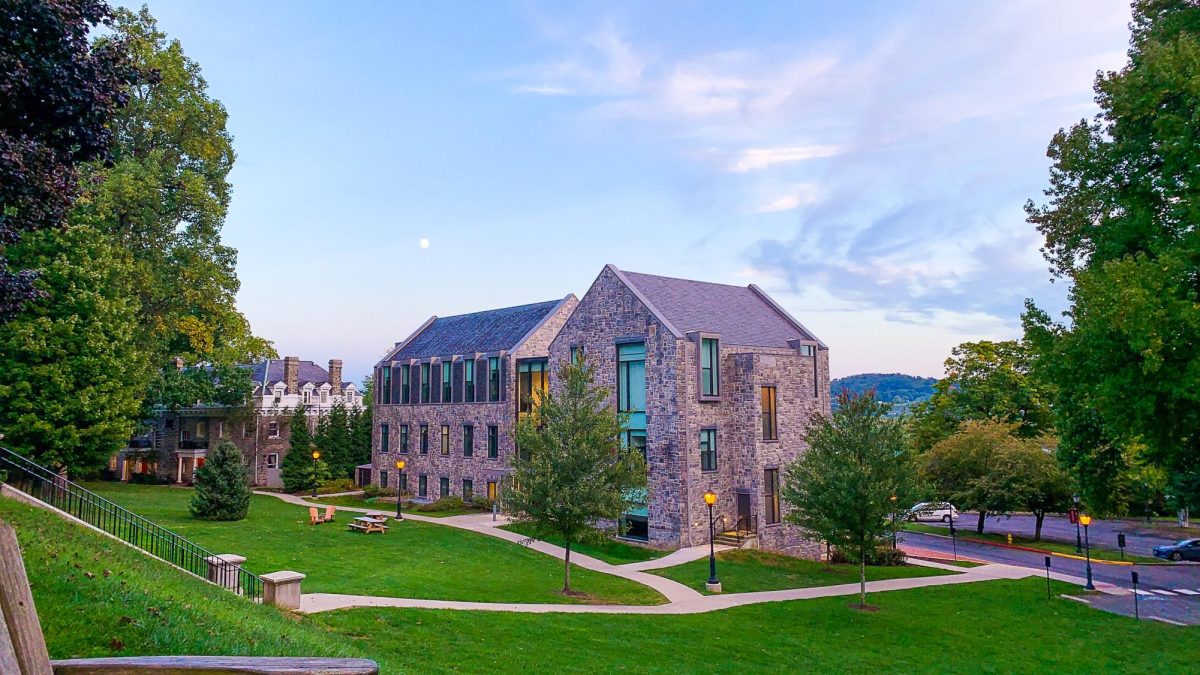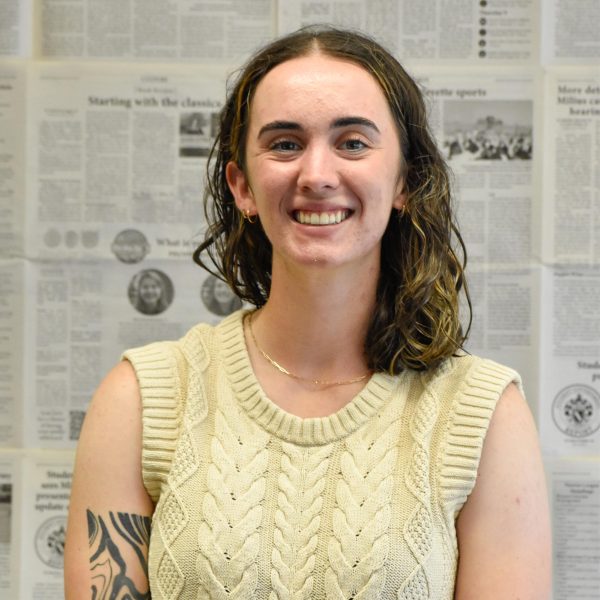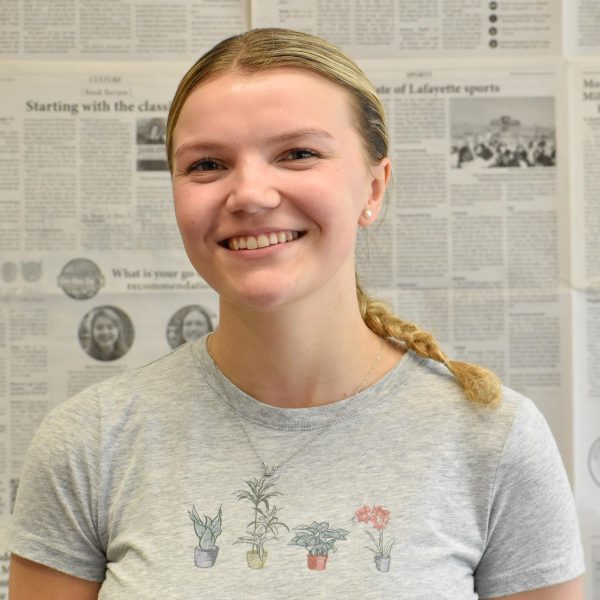While Lafayette’s athletes give their all on the field every day, some students are learning about the issues of sports in the classroom. Anthropology and sociology professor Rebecca Kissane and biology professor Manuel Ospina-Giraldo both decided to transform their passions for sports into classes that examine the impact of sports off the pitch.
Kissane first had the idea for her class, “Sociology of Sport,” more than 10 years ago when she decided to examine fantasy sports — a personal interest — from a scholarly point of view after gaining tenure.
“The way the course is developed is largely a course that focuses a lot on social inequality and its dimensions in sports,” Kissane said. “So both how sports reflect social inequality and issues of racism, classism [and] sexism, but also how they might serve as an arena in which we can contest some of those things.”
Ospina-Giraldo, a self-proclaimed soccer fan, decided to build his FYS, “Fútbol: The Beautiful Game,” after noticing several baseball-themed FYS courses.
“The class has a very strong component on the social aspects related to soccer,” Ospina-Giraldo said. “So we talk about things like homophobia, sexism, sectarianism, racism and so on. We also talk about soccer and climate change … [and] the role of soccer in politics. How dictatorships have used soccer for their own benefit as whitewashing projects now with Saudi Arabia and Qatar and all those places.”
Both Kissane and Ospina-Giraldo have several Lafayette athletes in their classes, which they said gives a personal dimension to class discussions.
Junior Phoebe Glass, an outside hitter on the volleyball team, is currently taking “Sociology of Sport” with a few of her teammates.
“I think it made me realize … how lucky I am to play a sport that I love and get to that point in my life because we studied a lot about poverty and how hard it is for people to get to the point where they want to be in sports,” Glass said. “And it’s a privilege and a gift obviously, to be able to play in college.”
However, Kissane noted that athletes sometimes struggle with the critical approach of “Sociology of Sport.”
“I think one of the challenging aspects of this course oftentimes is that it does take a critical lens to sports, even though I’m a sports fanatic,” Kissane said. “So sometimes it’s hard for students to think of sports in a way that isn’t entirely positive.”
Freshman Nadia Zaffanella, a midfielder on the women’s soccer team, immediately picked “Fútbol” as her first choice for FYS. However, Zaffanella noted the global impact of soccer on more than just players or fans.
“The game obviously has a lot more to it than just playing and I think a lot of people can learn about the history behind it and how it unifies different cultures in different countries,” Zaffanella said.
For both Kissane and Ospina-Giraldo, sports reflect the societies they exist in.
“Sports are an extremely important part of the social fiber,” Ospina Giraldo said. “I would say that it’s not only teaching sports for the sake of sports, but my class shows it’s also about the different aspects that may be questionable within the sport.”
“By knowing about sports as a social institution we can learn more about our values as a country and understand more about our culture,” Kissane said. “Sports act as a microcosm of larger societies.”
Looking forward to next semester, sports are back on the class schedule once again. “Sports Psychology” and a new history class, “The Beautiful Game: a Global History of Soccer,” will give students even more opportunities to study sports.
























































































































